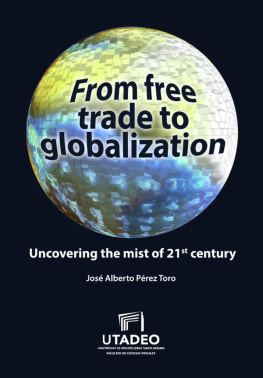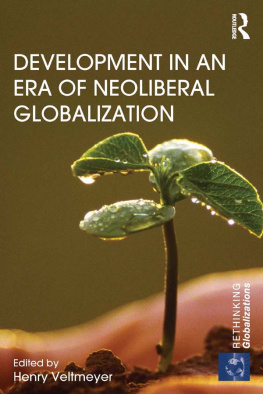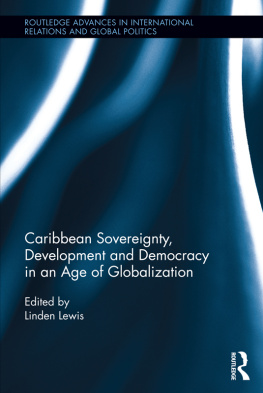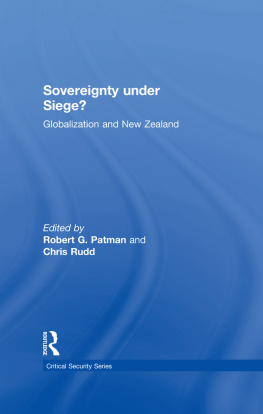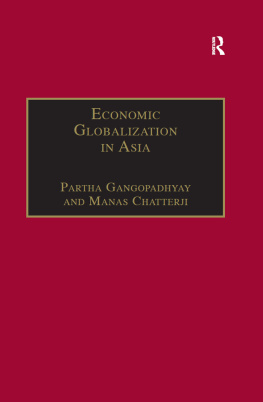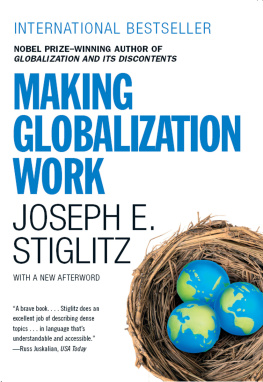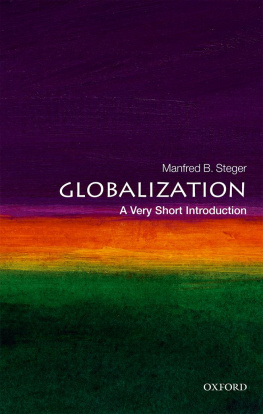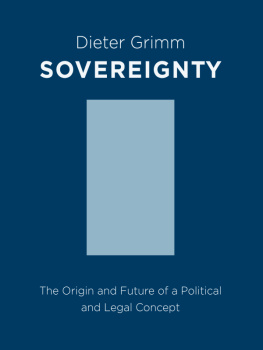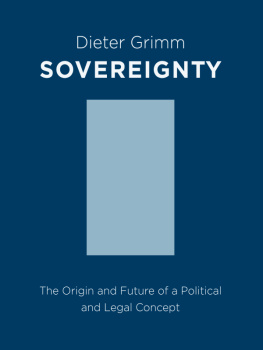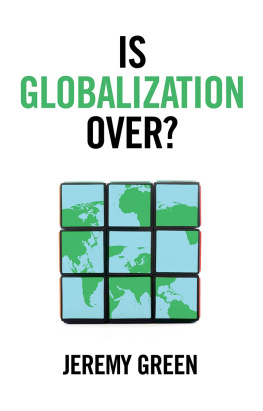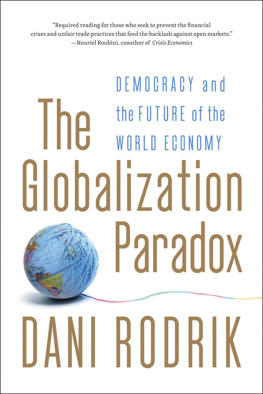Prez Toro, Jos Alberto
From free trade to globalization uncovering the mist of 21st century / Jos Alberto Prez Toro. -- Bogot : Universidad de Bogot Jorge Tadeo Lozano. Facultad de Ciencias Sociales. Departamento de Ciencias Polticas y Relaciones Internacionales, 2016.
584 p. ; 17 cm.
ISBN 978-958-725-237-8 Digital 978-958-725-184-5
1. GLOBALIZACIN. 2. LIBRE COMERCIO. I. tit.
CDD337P438
Fundacin Universidad de Bogot Jorge Tadeo Lozano
Carrera 4 N 22-61 PBX: 242 7030 www.utadeo.edu.co
From free trade to globalization uncovering the mist of 21 st century
ISBN: 978-958-725-237-8 Digital 978-958-725-184-5
Primera edicin 2016
Fundacin Universidad de Bogot Jorge Tadeo Lozano
R ECTORA : Cecilia Mara Vlez White
V ICERRECTORA A CADMICA : Margarita Mara Pea Borrero
D ECANA DE LA F ACULTAD DE C IENCIAS S OCIALES : Sandra Borda Guzmn
D IRECTORA DEL D EPARTAMENTO DE C IENCIAS P OLTICAS Y R ELACIONES I NTERNACIONALES : Olga Luca Illera Correal
D IRECTOR DE B IBLIOTECA : Andrs Felipe Echavarra
D IRECTOR DE P UBLICACIONES : Jaime Melo Castiblanco
C ORRECTOR DE ESTILO : Nicols Prez Balen
C ONCEPTO GRFICO Y DISEO CARTULA : Luis Carlos Celis Caldern
D IAGRAMACIN : Mary Lidia Molina Bernal
I MPRESIN DIGITAL : Xpress E STUDIO G RFICO Y D IGITAL
P ROHIBIDA LA REPRODUCCIN TOTAL O PARCIAL POR CUALQUIER MEDIO SIN AUTORIZACIN ESCRITA DE LA U NIVERSIDAD
IMPRESO EN COLOMBIA - PRINTED IN COLOMBIA
Much has been written about globalization as an economic and political concept. The academic debate looks forward for explanations about the historical roots and development of this emerging phenomenon where the Nation-States evolved into a system where nations are ruled by the dynamics of global interdependence. Globalization in the new era is characterized as a process where geographical, political and cultural borders tend to dissolve. The Westphalia notion of sovereignty capitulates against the principle of political subordination as integration of local power ensuring national legitimacy.
An important analytical debate around this topic, where the meaning of nations borders changes, brings into the fore another definition of democracy. With the National Interest, Francis Fukuyamas famous 1989 article, The End of History?, saw an avalanche of academic contributions rising new fundamental questions about the formation of a world made of an integrated market and of political institutions that subordinate national governments to market wills. The expansion and openness of markets is the result of a reduction of barriers, such as tariffs, and the shortened of physical distances among diverse producing places in the world, thus helping to increase broad commercial transactions. Thanks to the Internet and technological improvements, freight costs were reduced and travelers time was shortened, bringing cultures closer. Therefore, historical development is interpreted as the source of economic convergence, a concept that is tested with many nations empirical macroeconomic evidences.
For Colombians and for many other emerging economists in the world, this historical event raises interest both to learned communities and non-scholar observers, as they foresee that social scenarios experience nonreversible changes because initial conditions associated with historical phases may introduce promising self-sustaining development scenarios. The new historical conditions that developed for trade and exchange allow markets to diversify and become more open. Here is where different interests converge and where people of different political tendencies come to terms in the open political discussion to govern world institutions. In this open environment, globalizing forces help to transform cultures, politics, and social structures, and improve national and local development.
Specialized literatures rose exponentially after The End of History? As a result of this, intellectual movement spread new analytical tools to observe differences and similarities between 19th and 21st century development of the Nation-State around free trade practices. Political concepts that settled since the nineteen century political discourse now are being reproduced in the present century where in many continents the notion of the Nation-State is derived, but also evolving from, the Westphalia principles of sovereignty: legal equality between states, self-determination, and respect to the principle of non-intervention of states domestic affairs. During the 1980s and early 1990s, the debate on globalization became stringent about Westphalia sovereignty. It is difficult to appreciate a definitive conclusion about the results of this discussion; particularly after humanitarian violations of peoples rights interfere in nations internal affairs it suggests the appearance of a humanitarian crisis. This historical circumstance invites us to advance on a revision of the main occurring events at the beginning of the new millennium.
The world we knew in the 19th centurys was characterized by the active presence of some hegemonic countries that determined trade currents, investment structures, and regulated exchange activities. However, countries like Colombia are facing globalizing conditions that effects on its development structures. In the postindustrial era, countries, regions and specific productive sectors like banking, financial services, technology research, and climate change are needed to be solved in this 21st century. New global governance disposals or institutional rules tend to promote a new style of world development that might be too costly or hard to follow for developing countries. To face new developments, the global governance concept associates the creation of institutional and organizational means to allow for larger flows of capital and investment. Emerging problems, derived from technological advances, determine the future of the globalization process as suggested by Ian Goldin in his work Divided Nations, where he considers that the challenges faced in the emerging century are associated with climate change, cybersecurity, pandemics, migration and finance to complement other structural determinants of this borderless world (2014, p. 3).
These topics, brought to you by reputed researchers, increase the number of views and comprehends a wide and deep literature that fill universities racket libraries. So a tour dhorizon as we propose in this essay-book, intends to survey the basic definitions of the globalization concepts that compose the conventional bibliographical literature written on these matters and produced mainly during the 1990s. This literature is characterized by explanatory proposals and shows past and emerging trends on what characterize 19th and 21st centurys events as well as the current effects seen particularly in the field of social and economic development.
For Colombia it would be interesting to first look at earlier developments of some globalization experiences that occurred in industrialized countries and in some of their prominent colonial territories, as the world market expanded and some cultural and exchange practice occurred. Institutions similar to those we saw in the 19th century will allow emerging countries to follow some path dependent consequences of similar consideration in the present century to those of industrialized countries one century early. Analysts and practitioners on these topics suggest that emerging countries are now facing favorable conditions comparable in nature to those presented in the first globalization process of the 19th century.

